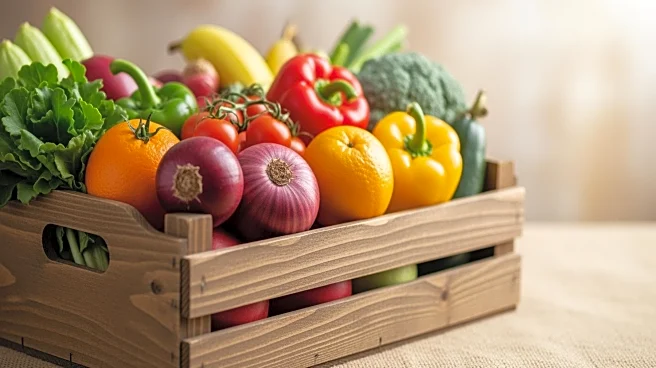What's Happening?
The Trump administration has announced an executive order exempting more than 200 food products, including bananas, beef, and coffee, from reciprocal tariffs imposed on U.S. trading partners. This decision
comes as the tariffs face increasing economic, legal, and political resistance, raising doubts about their effectiveness. The exemptions aim to address rising prices and inflation concerns, particularly for everyday grocery items. Despite the rollbacks, White House officials maintain that the move does not signify a retreat from the administration's tariff policies, which have been a cornerstone of President Trump's economic strategy.
Why It's Important?
The exemption of food products from tariffs is a critical development in the ongoing debate over trade policies and their impact on the U.S. economy. By reducing tariffs, the administration seeks to alleviate price pressures on consumers and address inflation concerns. This move could potentially lower costs for American households, particularly for essential food items. However, it also highlights the challenges faced by the administration in balancing trade protectionism with economic realities. The decision may influence future trade negotiations and impact the U.S. manufacturing sector, which has been affected by the tariffs.
What's Next?
The administration's decision to exempt certain products from tariffs may lead to further adjustments in trade policies as economic conditions evolve. Stakeholders, including businesses and policymakers, will likely monitor the impact of these exemptions on consumer prices and inflation. The Supreme Court's upcoming decision on the legality of Trump's tariff authority could also shape future trade strategies. Additionally, the administration may continue to negotiate trade agreements with other countries to secure favorable terms and reduce tariff-related economic pressures.











